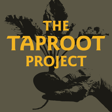
Midwest Grain Chain - Cultivating Relationships and Markets
The Midwest is sometimes called the breadbasket of America. But the infrastructure for local grain production and processing has largely disappeared, and most of the grains that are now grown here are used for animal feed. What does it take to restore a regional grainshed in the Midwest? Kate talks with folks at the Artisan Grain Collaborative about the future of grain, and with a brewer and a farmer who are bringing that future into being.
The Taproot Podcast is an initiative of the Midwest Transition to Organic Partnership Program, a project funded by the USDA National Organic Program to support transitioning and organic producers with mentorship and technical assistance and to grow the greater organic community. Learn more at organictransition.org.
You can find new episodes from The Taproot Project wherever you get your podcasts.
Guest Bios
Elena Gutierrez Byrne is the Communications Manager at the Artisan Grain Collaborative. She holds a doctorate in nutritional sciences from the University of Wisconsin–Madison, and has been an avid gardener for years with her husband on their 8 acres just outside of Madison, WI. She is enjoying seeing the local foods movement capture the hearts of consumers everywhere.
Jessica Jones is the Brewer and co-owner of Giant Jones Brewing Company - an independent, women and queer-owned, certified organic craft brewery in Madison, Wisconsin. She is a Grand Master Beer Judge through the Beer Judge Certification Program (BJCP) and an Advanced Cicerone®. Jessica loves Barleywine and providing extremely in-depth answers to what you believed was a simple question.
Willie Hughes is the sixth generation to operate the Hughes family farm in Janesville, WI. They have incorporated multiple conservation practices including diversified rotations, extensive cover cropping, improving soil health through compost and biologicals, variable rate applications, and automated irrigation water management. Hughes Farms consists of 5000 acres of food grade, NON-GMO and organic specialty crops.
Amy Halloran lives in upstate New York. Her love for food, and for the people who grow and make it, led her to write a book about the revival of regional grain production, The New Bread Basket. She's worked in emergency feeding programs, and believes that food insecurity and regional grain systems share a core American problem: of our not valuing the work of feeding each other. Amy is working on a book about the twinned histories of the modern American loaf and the modern American woman.
Helpful Links
- Artisan Grain Collaborative
- Giant Jones Brewing Company
- The New Bread Basket
- Anatomy of a wheat kernel
Credits
This work was funded and supported by the USDA National Organic Program, Transition to Organic Partnership Program (TOPP)
Hosted and produced by Kate Cowie-Haskell
Podcast art by Geri Shonka
Music:
- Ghost Solos by Lucas Gonze, Free Music Archive, CC BY
